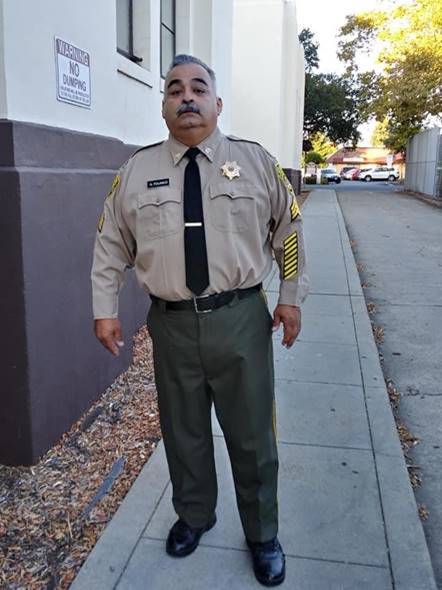A sergeant at San Quentin State Prison died Sunday after a battle with COVID-19, marking the first virus death of an employee at the facility that has grappled with a large outbreak among both staff and inmates.

Sgt. Gilbert Polanco died of COVID-19 complications weeks after being admitted to a hospital where he was fully intubated and placed in a medically induced coma, according to a GoFundMe page set up to raise money for his family.
His wife and daughter both ended up testing positive for the virus after his hospitalization, according to the fundraising page.
Polanco was a San Jose native who had worked at San Quentin since 1988.
“Sgt. Gilbert Polanco demonstrated unwavering commitment and bravery as a peace officer working the frontline every day during this devastating pandemic,” Acting San Quentin Warden Ron Broomfield said in a statement. “His memory is carried on in the hearts of all the men and women who continue to battle this deadly virus at San Quentin.”
Polanco’s family said they believe he contracted the deadly virus from the prison, KTLA sister station KRON4 in San Francisco reported.
San Quentin has had 2,231 inmates and 261 employees test positive for the virus — the largest outbreak among California Department of Corrections and Rehabilitation’s prisons, which together have had 1,976 coronavirus cases among staff and 8,768 among inmates.
Twenty-four inmates have died of COVID-19 at San Quentin, accounting for nearly half of the COVID-19 inmate deaths at California state prisons.
Polanco is the ninth California state prison employee to die of COVID-19.
“Sergeant Gilbert Polanco is an example of the best of CDCR and his passing deeply saddens us all. His dedication to public service will not be forgotten,” said CDCR Secretary Ralph Diaz. “On behalf of a grateful department we extend our prayers of comfort and condolences to the Polanco family during these difficult times.”
San Quentin had escaped a coronavirus outbreak until inmates from the California Institution for Men in Chino were transferred there in late May, when cases started to soar, the Associated Press reported.
As the coronavirus spread through the prison system, California officials in March started granting early release to prisoners who are serving terms for nonviolent crimes and are nearing the end of their sentences.
In July, California announced another 8,000 people would be granted early release.
So far, the state has reduced its inmate population by more than 12,000 people since the pandemic began in March, according to CDCR.










